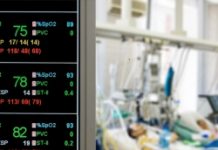 The last 12 months have seen a number of proposed changes to the NHS Pension Scheme, as well as reductions in the amount individuals can save into a pension tax efficiently. Ian Morgan, National Sales Manager at Wesleyan Medical Sickness, looks at the proposed changes to the NHS Pension Scheme and how they may impact junior doctors.
The last 12 months have seen a number of proposed changes to the NHS Pension Scheme, as well as reductions in the amount individuals can save into a pension tax efficiently. Ian Morgan, National Sales Manager at Wesleyan Medical Sickness, looks at the proposed changes to the NHS Pension Scheme and how they may impact junior doctors.
What is happening to the NHS Pension Scheme?
In March, the government published its final proposals for the new design of the public sector pension schemes in England and Wales, including the NHS Pension Scheme (NHSPS). A bill will be introduced in the next Parliament, with the aim of implementing it in 2015. The main changes to the scheme will be:
- It becomes a career average scheme for all members. Hospital doctors’ pensions are currently based on their final salary while GPs already have a career average scheme. This type of scheme means you build up a ‘slice’ of pension each year of your service, based on your salary in that year. That slice – and future slices – will be revalued each year in line with the increase in the Consumer Price Index (CPI) rate of inflation, +1.5%. On retirement, the total accumulated ‘slices’ make up your pension pot.
- There will be an accrual rate – the amount of pension you build up each year – of 1/54th (1.85%) of pensionable earnings. This is very similar to the 2008 Scheme (1/60th or 1.67%).
- The normal retirement age will fall in the line with the State Pension Age – currently between 65 and 68. However, members will retain the option to retire after 55, although early retirement is likely to result in a reduced pension. You can take your NHS pension before your State Pension Age.
- Employee scheme contribution rates will increase by an average of 3.2%. These increases are being introduced over three years from April 2012. Higher earners will see a 2.4% increase in contributions.
Do these changes affect pension rights already earned?
No. All pension rights earned in the NHSPS up to April 2015 will be unaffected and you can access it in full at your current normal pension age.
What other changes should you be aware of?
From April 2012, the Lifetime Allowance, the total amount of benefits that can be drawn from pensions without tax penalties being applied, reduced from £1.8 million to £1.5 million. At this stage in your career this sounds like a lot of money, but over a 40 year career which is likely to include promotions, you may find yourself impacted by changes in the Lifetime Allowance, especially if you also save into a personal pension. This could influence how you build your pension and you might need to consider other savings products such as ISAs to run alongside your pension for retirement planning.
In April 2011 the Annual Allowance, that is the total amount you can save into your pension each year with tax relief, fell from £255,000 to £50,000. The likelihood of exceeding the Annual Allowance will be determined primarily by the yearly increase in your NHS pension and also if you contribute to a private pension plan or pay additional voluntary contributions.
What will happen if doctors build up more in their pensions than the limits allow?
Exceeding your pension allowances can be very costly – if your pension accrual over the year is more than the Annual Allowance of £50,000 and you do not have any unused Annual Allowance to carry forward from the previous three tax years, you’ll be taxed on the additional amount at your marginal rate, which will likely be either 20% or 40%.
These changes sound complicated, how can doctors be sure of their particular situation?
Wesleyan’s Financial Consultants are regularly briefed by our technical experts about all the changes affecting the NHS pension scheme and retirement savings. Combined with their in-depth understanding of the medical profession, they will be able to help you understand your individual circumstances.
The above information does not constitute financial advice. If you would like more information or need specialist financial advice, call Wesleyan Medical Sickness on 0800 358 6060 or visit the website at www.wesleyan.co.uk/doctors.


































